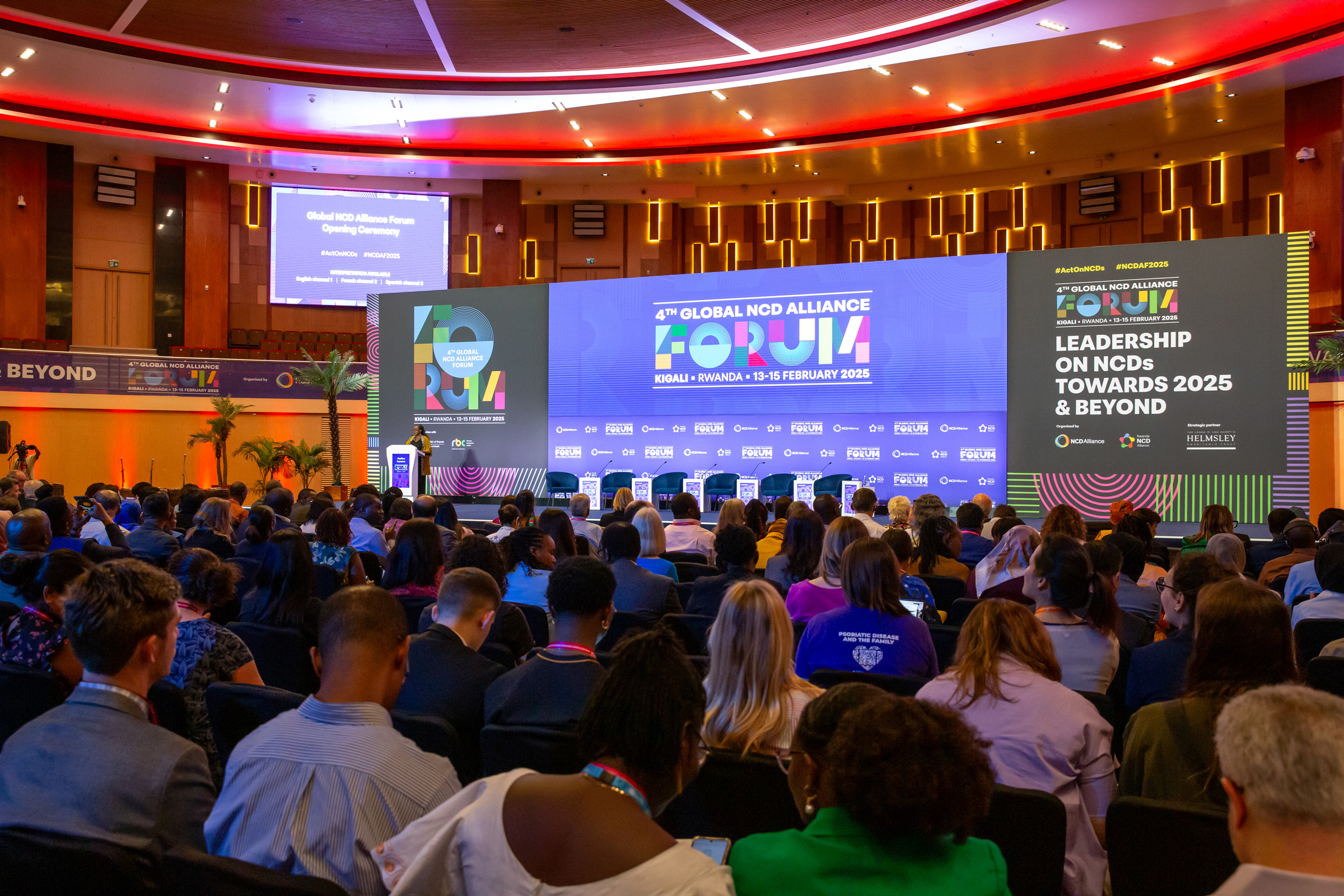
The rising burden of noncommunicable diseases (NCDs) is one of the most pressing global health challenges of our time. As the number of people affected continues to grow, particularly in low- and middle-income countries, the need for urgent, coordinated action has never been greater. Nowhere was this urgency more evident than at the 2025 Global NCD Alliance Forum in Kigali, Rwanda last month.
This year’s Forum was the first to be held in Africa, a region both deeply affected by the NCD crisis and demonstrating bold leadership in addressing it. Helmsley — a long-time supporter of the NCD Alliance (NCDA) and the Forum — was proud to serve as a strategic partner for this milestone moment.
There is no denying the challenges and uncertainty we face in global health right now. Despite this, I left the Forum energized for the work ahead. Forums like this are not just spaces for dialogue — they can jumpstart action. Here are three takeaways from the Forum to shape the path forward.
Keep People Living with NCDs Front and Center
At the heart of the Forum was a resounding commitment to keeping people living with NCDs front and center. Community-based organizations and advocates bring invaluable insights, energy, leadership to the table. Their on-the-ground expertise ensures that global strategies are impactful and lasting.
Helmsley supports this approach through our work with Panorama Global on the T1D Community Fund, which supports 30 organizations across 23 countries that serve individuals and families impacted by type 1 diabetes (T1D). I had the chance to meet many of the Fund’s grantee partners in Kigali. Each of them reinforced how important it is to support community-led initiatives that address real, lived experiences.
Engaging people living with NCDs must go beyond listening. Those most affected must be able to lead the charge for change. with holistic, person-centered solutions.
Build Bridges Across Health Issues
Addressing NCDs requires integrated solutions, when too often approaches have been siloed between different diseases. Investing in strong, inclusive healthcare systems ensures that people receive the care they need, we can create sustainable solutions that benefit entire communities.
In the African Region, Helmsley is supporting WHO Regional Office for Africa (AFRO) and the NCDI Poverty Network to implement PEN-Plus, a strategy that integrates and localizes care for multiple severe NCDs, including T1D. Eight years ago, I met several patients who had just started to receive care through PEN-Plus in Rwanda, when they were struggling with complex NCDs, uncertain about their future. During the Forum, I had the privilege of reconnecting with some of these individuals. Seeing them now — thriving, hopeful, and engaged in their communities — was a powerful reminder of what’s possible when we invest in integrated and accessible care.
Collaborate with Local, Regional, and Global Partners
The NCDA Forum was also a powerful reminder that no single organization, sector, or country can tackle NCDs alone. Partnerships across civil society, private industry, philanthropy, and governments are essential to building sustainable solutions. Whether it was a conversation about integrating NCD services into primary care, increasing domestic financing for NCDs, or collaborating across sectors, the common theme was clear: we must work together.
Eliminating silos — whether in donor investments, policy implementation, or advocacy efforts — will drive lasting change. The partnerships and conversations started at forums like this one are instrumental in building momentum and securing stronger global commitments to NCD care.
Leaving Kigali, the momentum for change is undeniable. Young leaders from over 40 countries united during the Forum to launch the Kigali Youth Declaration, a powerful call for action and accountability to ensure we deliver a future where access to care for NCDs is not the exception but the norm.
As we approach the High-Level Meeting on NCDs in September, people living with NCDs are counting on us to help build a world where access to care is not determined by geography or income. Together, we can turn ambition into action.